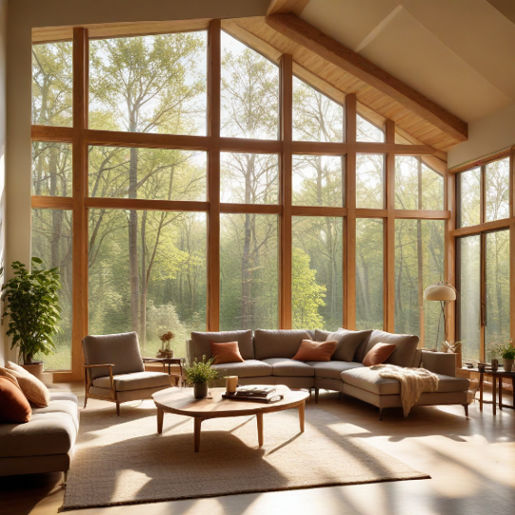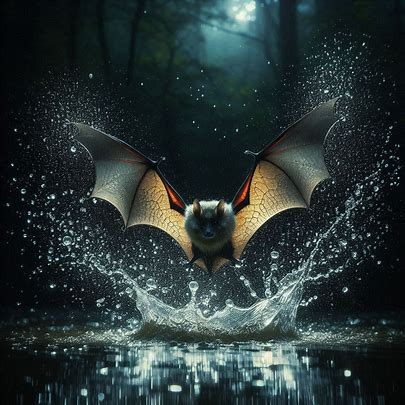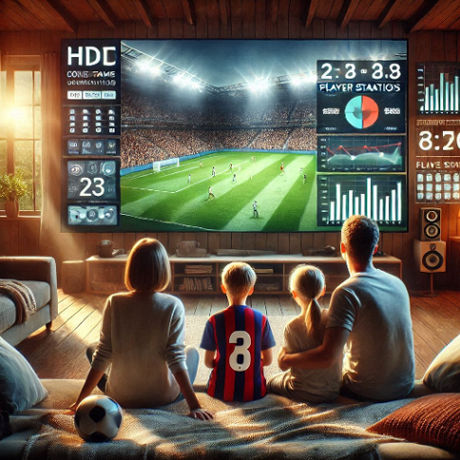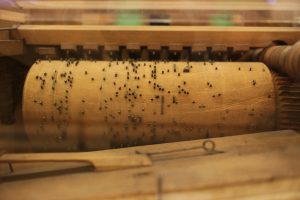
123Movies has changed how people entertain themselves by providing instant access to thousands of titles. Behind these actions are unique webs of biology and feeling tethered to our evolution.
123Movies movies Binge-watchers activate pleasure centers of their brain akin to those elicited by delicious food, enthralling music, or connecting with friends. It is this neural response that fully explains how people become lost in time, completing whole seasons in one go.
Of particular importance in this process is the neurotransmitter dopamine, which is associated with pleasure and motivation. Each episode ends with a cliffhanger, at which point another dose of dopamine is secreted, keeping the episode viewer locked in and eager to press “Next Episode.”
Even in the absence of these devices triggering brain pleasure and reward mechanisms, system users may establish a behavioral pattern that, in its mildest state, mimics the form of addiction observed in games or social media platforms.
Emotional Connection and Cognitive Resonance
Binge-watching evokes a strong emotional attachment to the worlds and characters of fiction. This phenomenon is known as narrative transportation, where the brain registers fiction as reality.
Neuroscientists have shown that mirror neurons, responsible for empathy, activate during emotionally charged segments of film, enabling the viewer to feel as though they are within the narrative and experience the corresponding joy, fear, or sadness.
The emotional immersion in the film can also provide relief. For many, the feeling of emotional catharsis and stress relief is beneficial. However, similar to cognitive overload, a person can experience burnout from sustained and uninterrupted heightened emotions.
The challenge is understanding the balance between rest and active stimulation that the mind needs.
ALSO READ: 5 Scientific Innovations That Transform Free Soccer Broadcasts Into an Unforgettable Experience
The Impact of Streaming on Sleep and Memory
Another fascinating insight that neuroscience provides in the context of binge-watching is sleep cycles. The blue light from screens has also been shown to delay melatonin, the sleep-regulating hormone, making it difficult to sleep after a binge session during the night.
Streaming shows contain sudden and suspenseful segments, which increase cortisol and keep the brain active even when the body is relaxed.
Concerning the postponement or disruption of the sleep cycle, scientists observe that the process of memory consolidation—where brief experiences are transformed into long-term knowledge—is altered and that sleep fragmentation as a result of bingeing has a cascading effect on the regulation of emotions and focus the day after, leading to a monumental decline in cognition in a subtle manner.
Exploring the Positive Aspects of Binge Culture
While binge-watching has its share of negative effects, it is not entirely detrimental. It may foster social connection, facilitate appreciation of culture, and even foster some level of creativity.
It is the job of neuroscience to identify the optimal conditions in which binge-watching does not become a negative engagement but rather a productive one.
Our understanding of the neural reactions to streaming platforms is evolving as the platforms themselves undergo transformation. For now, we have the knowledge of our reaction to the stimuli.
This is the most potent knowledge, as it allows one to control when and how to watch.





 Every beat, note, and rhythm inside Jeju’s nightlife venues carries more than melody. It carries emotion. From the soft jazz that fills a private lounge to the deep house vibrations that pulse through upscale bars, music shapes how people feel, think, and interact. Scientists have long studied how sound affects the human brain, revealing that our responses to music are hardwired. This is especially true in social environments like Jeju’s lounges, where mood, rhythm, and connection blend into a single sensory experience.
Every beat, note, and rhythm inside Jeju’s nightlife venues carries more than melody. It carries emotion. From the soft jazz that fills a private lounge to the deep house vibrations that pulse through upscale bars, music shapes how people feel, think, and interact. Scientists have long studied how sound affects the human brain, revealing that our responses to music are hardwired. This is especially true in social environments like Jeju’s lounges, where mood, rhythm, and connection blend into a single sensory experience. When water moves through pipes, it creates vibrations. These vibrations travel through materials and can produce noise—some of it unpleasant, some of it useful. The same principles apply to music and audio technology. Microphones and speakers also rely on vibrations to work. That shared principle has encouraged crossover studies where scientists analyze how pipe fluid dynamics relate to soundwave production.
When water moves through pipes, it creates vibrations. These vibrations travel through materials and can produce noise—some of it unpleasant, some of it useful. The same principles apply to music and audio technology. Microphones and speakers also rely on vibrations to work. That shared principle has encouraged crossover studies where scientists analyze how pipe fluid dynamics relate to soundwave production.

 In addition to being an amazing natural phenomenon in and of itself, the migration of monarch butterflies serves as a barometer for the state of the ecosystem. Loss of habitat and pesticide use have caused a dramatic drop in the number of these butterflies in the last several decades. Insect conservation is critical to ensuring the continued viability of ecosystems.
In addition to being an amazing natural phenomenon in and of itself, the migration of monarch butterflies serves as a barometer for the state of the ecosystem. Loss of habitat and pesticide use have caused a dramatic drop in the number of these butterflies in the last several decades. Insect conservation is critical to ensuring the continued viability of ecosystems.

















 Science enthusiasts are always on the lookout for gadgets to buy womens apple watch bands online, that will make their lives a little more exciting. They want to be able to explore and experiment with science, but they don’t have the time or resources to do so.
Science enthusiasts are always on the lookout for gadgets to buy womens apple watch bands online, that will make their lives a little more exciting. They want to be able to explore and experiment with science, but they don’t have the time or resources to do so.



 The word Chiron is a Greek word that means “the one who pierces.” The name Chiron is derived from the Greek words “cheir” and “on” which mean hand and eye respectively. Chiron was a centaur, half human and half horse. He was the son of Kronos (Cronus), the god of time, and Philyra. He was also the tutor of many heroes including Heracles (Hercules).
The word Chiron is a Greek word that means “the one who pierces.” The name Chiron is derived from the Greek words “cheir” and “on” which mean hand and eye respectively. Chiron was a centaur, half human and half horse. He was the son of Kronos (Cronus), the god of time, and Philyra. He was also the tutor of many heroes including Heracles (Hercules).








 Finding reliable scientific sources online can be a daunting task. There’s a lot of content out there—but not all of it is trustworthy. Whether
Finding reliable scientific sources online can be a daunting task. There’s a lot of content out there—but not all of it is trustworthy. Whether  Science and traditional performance art may seem like two very different worlds. However, when it comes to Bian Lian—the ancient Chinese art of face-changing—there’s an interesting connection between human psychology, visual perception, and event presentation by a booth hostess. Booth hostesses play a unique role in bringing this mysterious and visually stunning art closer to modern audiences, especially during cultural expos, tech fairs, or science-related events.
Science and traditional performance art may seem like two very different worlds. However, when it comes to Bian Lian—the ancient Chinese art of face-changing—there’s an interesting connection between human psychology, visual perception, and event presentation by a booth hostess. Booth hostesses play a unique role in bringing this mysterious and visually stunning art closer to modern audiences, especially during cultural expos, tech fairs, or science-related events.

 Air conditioning and heating systems are magical, aren’t they? One moment, your room feels like a sauna, and the next, cool, refreshing air flows from your vents, bringing relief. But this “magic” is
Air conditioning and heating systems are magical, aren’t they? One moment, your room feels like a sauna, and the next, cool, refreshing air flows from your vents, bringing relief. But this “magic” is 




 Dutch homeowners faced with compromised drainage systems consider recommendations for relining (relinen) solutions in addressing the foundational problems of their house. Actually, the method is widely used by local Dutch governments who engage contractors who specialise the relinen
Dutch homeowners faced with compromised drainage systems consider recommendations for relining (relinen) solutions in addressing the foundational problems of their house. Actually, the method is widely used by local Dutch governments who engage contractors who specialise the relinen  The need to apply the same solution in households with poor drainage and sewer systems is important because it can make residents vulnerable to health risks by insect infestations and growth of mould and mildew inside households. Moreover, degraded sewers can give rise to damaged structural foundations that will eventually require a more complex method of repairing structural foundations
The need to apply the same solution in households with poor drainage and sewer systems is important because it can make residents vulnerable to health risks by insect infestations and growth of mould and mildew inside households. Moreover, degraded sewers can give rise to damaged structural foundations that will eventually require a more complex method of repairing structural foundations In recent years, sports broadcasting has become more than just narrating what’s happening on the field. Science is increasingly shaping how sports are presented to audiences around the world. From real-time data analysis to advanced camera technology, the influence of science on sports broadcast is undeniable. This combination is transforming the way fans experience their favorite sports and bringing a new level of excitement to the game.
In recent years, sports broadcasting has become more than just narrating what’s happening on the field. Science is increasingly shaping how sports are presented to audiences around the world. From real-time data analysis to advanced camera technology, the influence of science on sports broadcast is undeniable. This combination is transforming the way fans experience their favorite sports and bringing a new level of excitement to the game.
 Unveiling the Mysteries of the Universe
Unveiling the Mysteries of the Universe

